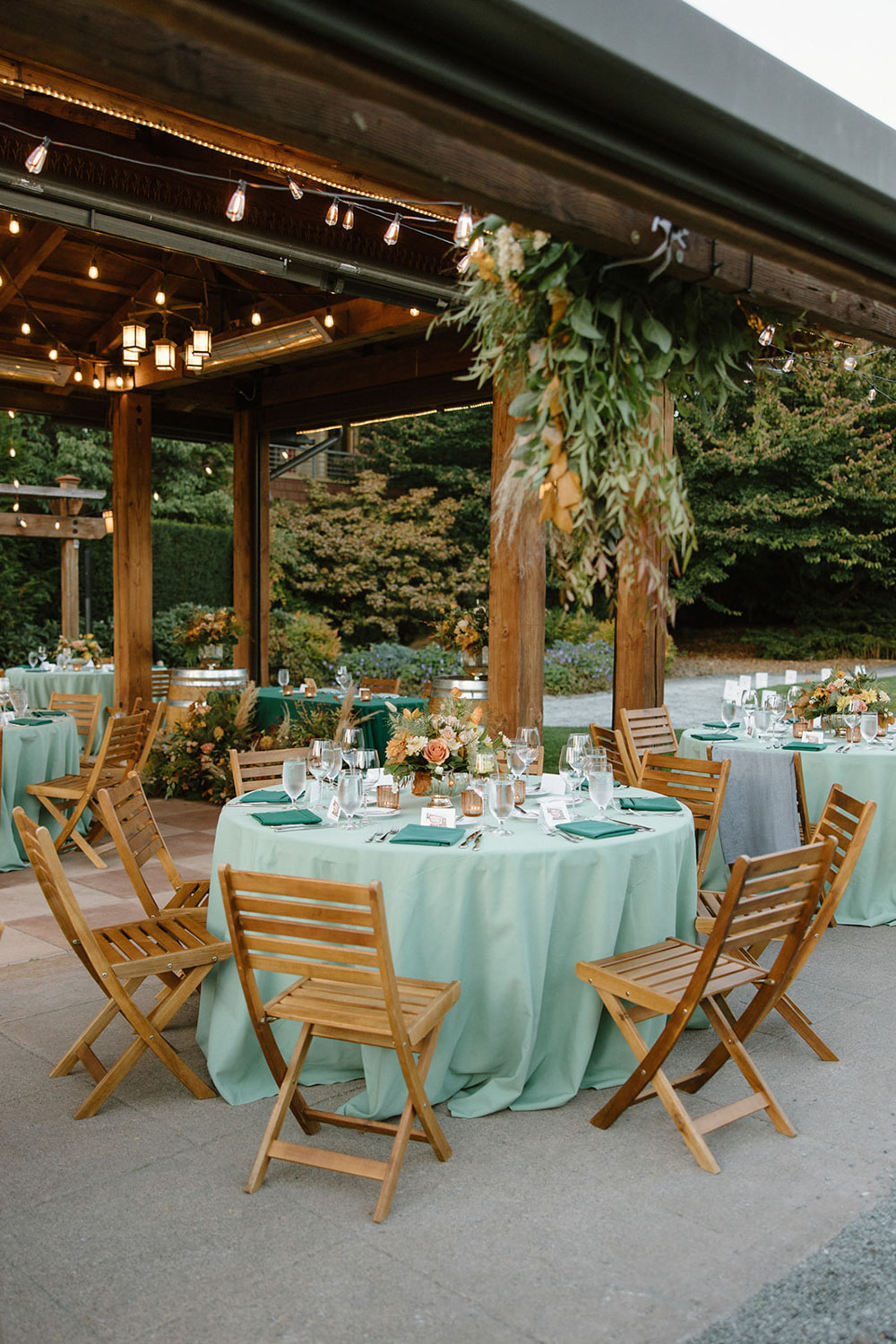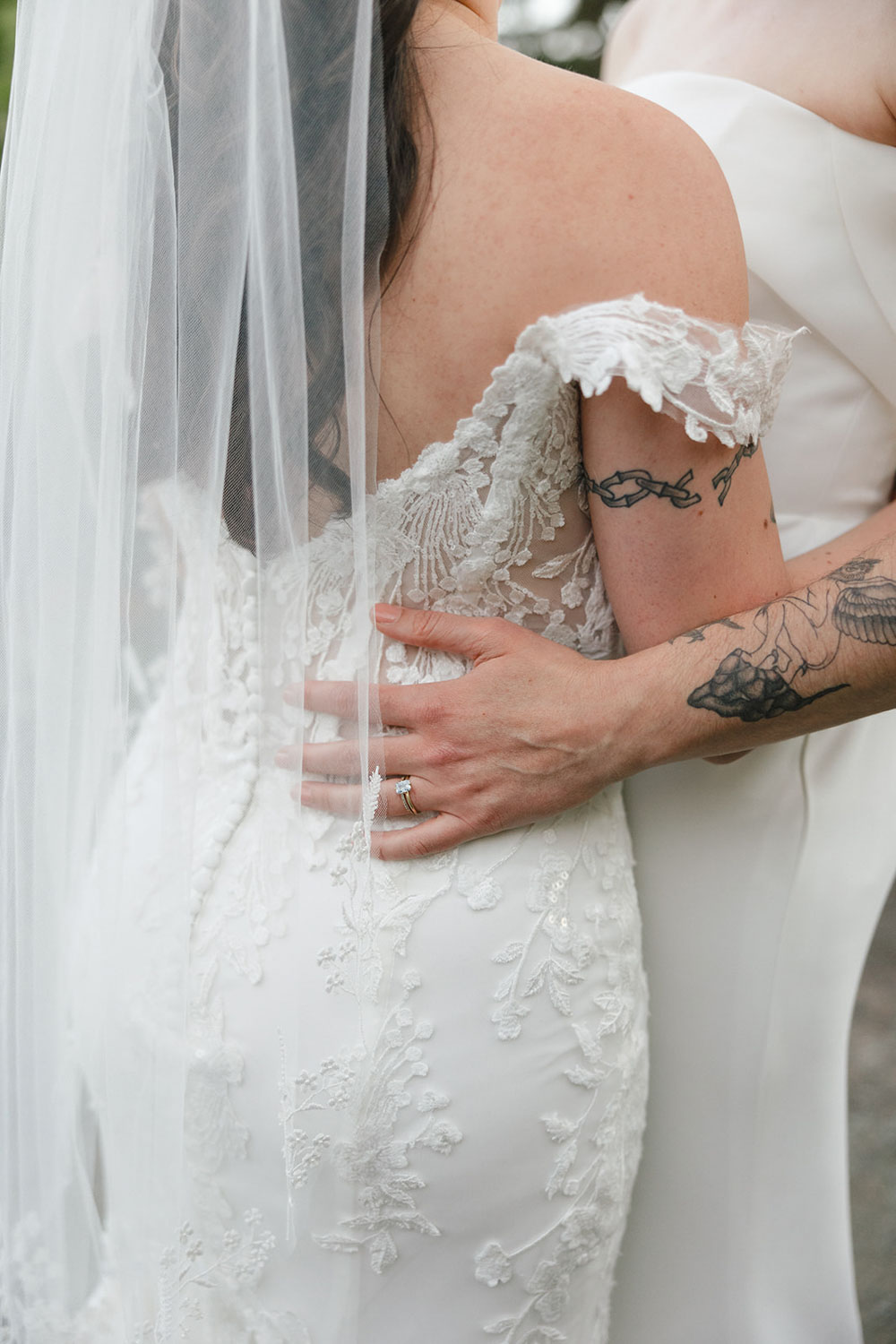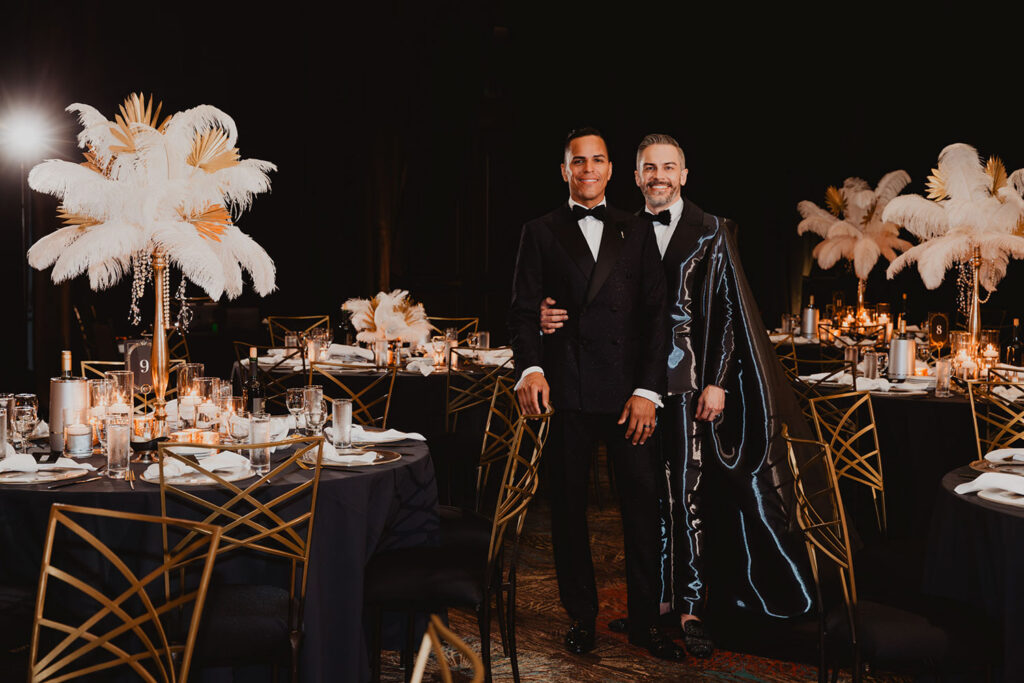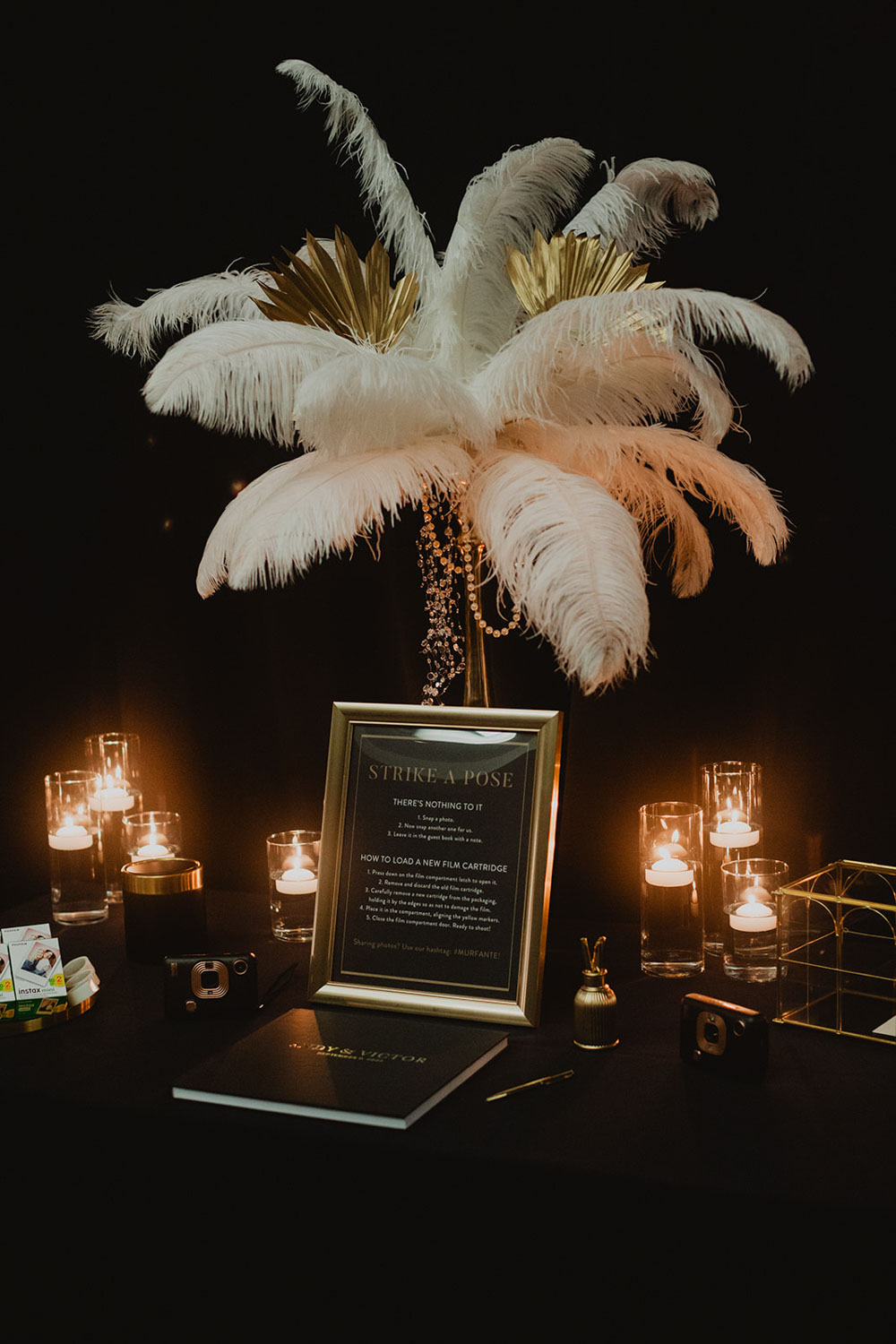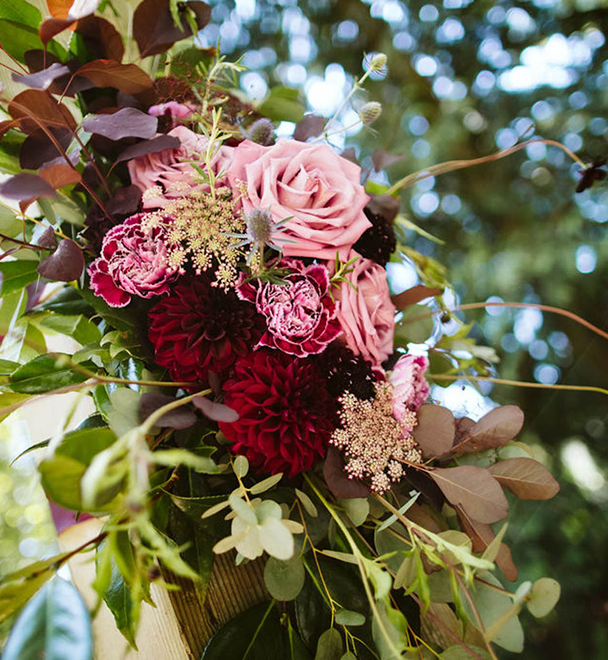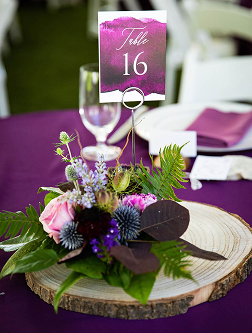Update: I wrote a part two that talks more about the cost of full-service planning and design. Read it here. You should also know that this post was written in 2019, before massive pandemic-driven inflation. Wedding costs have risen upwards of 20%, just like everything else – so consider the numbers below with that in mind.
So, I was browsing a wedding group on Facebook today, like I do, and a frequently-asked-question came up: How much does a day-of-coordinator cost?
I popped in with my standard reply: that most experienced professionals charge $2000-$3000 for Wedding Management and that planners who travel (like me) or who live in major metro areas where the cost of living is high (like me) charge more like $3000-$5000 for it.
I was not surprised by the response, which I’ve heard many times: That’s way too much.
The wedding industry is just over-the-top expensive.
So today, I want to help you understand why it is that everything with the word “wedding” attached seems to come with such an exorbitantly high price tag.

Weddings are expensive, it’s true, but it’s not because wedding pros are ripping everyone off.
It’s because throwing a big fancy party for a lot of people costs a lot of money.
I’m going to break it down for you from a planner’s perspective, but similar calculations can be made for just about any wedding vendor. (Warning: math ahead!)
For starters, as a planner, if I want to do the very best job I can for my clients, I can only take one wedding per weekend. (And I do.)
If I take more than that, my focus is split, I have to miss somebody’s rehearsal because it’s during the other couple’s wedding. One couple is getting me on my second 12-14+ hour workday in a row. And the other couple else is getting less than my full attention as I field last-minute questions for the next day.
That’s not giving my best to either couple or my complete focus on all the moving parts of either wedding day.
Furthermore, I can’t be on-call for the whole rehearsal day for one couple while I am literally working the wedding of another – something I promise to every couple in my contract.
There are 52 weekends in a year, but in most parts of the country, nobody wants to get married when it’s cold, so wedding season is generally mid-April through mid-November.
So if I work every single weekend for seven months straight, I can potentially do a maximum of 28 weddings each year.
(I will put aside, for now, the fact that 15-20 weddings in a year is a *very* full schedule and more than that probably means you need at least one employee. Who, we can assume, would also like to be paid.)
Now the math, which I’ll do a few ways here – with what I see most experienced planners charging (around $3000); with the low end of what I stated above ($2000); and with a price I see floated as an average around the internet ($1500).
At $3000 per wedding, I could gross $84,000, which is rich in some places, decent in most, and enough to live comfortably on in many major metro areas, including mine.
At $2000 per wedding, my earning potential is reduced to $56,000.
At $1500 per wedding, annual sales with a completely packed schedule are just $42,000.

All of these are ok salaries, except that’s not what they are. Those are gross sales numbers.
So now we’ve gotta talk about expenses.
For every wedding, I have some costs in travel to and from meetings and venues, welcome gifts, printed paperwork, and making sure I have a fully-stocked emergency kit. For most of those weddings, I’ll also pay an assistant for the whole day. Let’s estimate that at $300 per wedding on the low end.
That gives me $1200-$2700 per wedding. That’s $33-75k per year. You can start to see the effects here, especially at the lowest pricing. Now, at the “outrageously high” price, a wedding planner still seems to be earning a decent salary in most parts of the country.
Ok, but after that, we also need to account for all the overhead costs of running a business: business license, website, phone, email, assorted software programs to manage events, timelines, floor plans, customers, and accounting. Liability and E&O insurance. Networking events. Paying the accountant and the lawyer and the graphic designer and the photographer periodically to keep you legal and make sure your branding, headshots, and website are current. Continuing education, which is essential to growth in any industry. Booths at wedding expos. Listings in vendor directories and ads on Facebook or Instagram or in wedding magazines. And on and on.
This can easily be $1000+ per month, and if you have an office outside your home, substantially more. So knock another $12k off that number.
At $3000 per wedding, a planner’s pay drops to $63,600. Still a livable salary in most places, but not looking so good if I live in an expensive big city – which not coincidentally are the places where couples are more likely to hire planners at all.
At $2000 per wedding, it’s now down to $35,600. That’s getting hard to live off of just about anywhere.
At $1500 per wedding, a planner’s salary is just $21,600. Now that planner needs a second job on top of your more-than-full-time wedding workload.
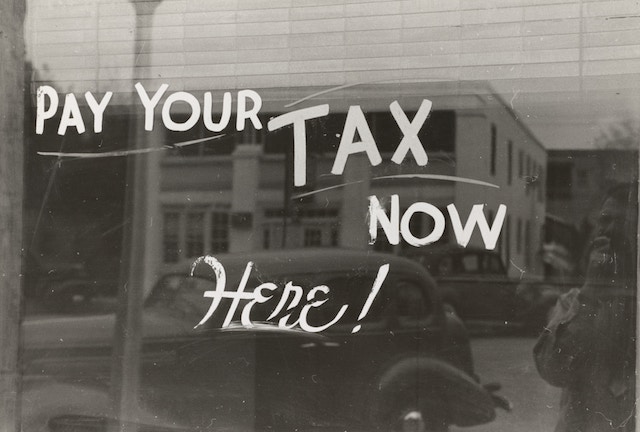
And that’s before taxes.
Here’s the kicker: As a small business, a wedding planner is their own employer, so instead of the usual ~15-20% of your paycheck going to state and federal income tax, social security, and medicare, we have to pay the employer’s share, too.
The self-employment tax rate is currently 15.3%. Let’s knock that off of those numbers.
Now a planner’s pay – before income tax – is $18,295 if they’re charging $1500 per wedding. After federal income taxes, they’ll have a net income of around $1280 per month. That might cover rent and groceries in a low cost-of-living area.
At $2000 per wedding, what The Knot reports as the average spend on a wedding planner, your wedding planner’s annual salary is just under $25,000 after federal taxes. About $2000 per month. Now we can pay for our health insurance (at about twice the cost of most employees, since again, we don’t have an employer to share the expense with.) We can probably pay our utility bills, too, and depending on where we live, we might be able to afford a car. (Which, in most circumstances, is an absolute necessity for getting to and from your weddings.)
At $3000 per wedding – that’s an amount most couples consider insanely high – a planner makes about $42,875. With about $3500 per month coming home, now we can probably afford everything we need and even a few things we want, as long as we work our asses off to make 28 weddings happen every year.
$2000 per wedding is not a sustainable average rate for a wedding planner almost anywhere in this country.
Some of us mitigate that by taking on full and partial planning weddings at higher rates, but those, of course, take more work hours from us. And that reduces the overall number of weddings we can successfully manage in a year without burnout / while still having a life outside of work. (And to be super clear: a wedding every single weekend for seven months is already a recipe for burnout.)
So yes – $3000-$5000 or more is a lot of money.
It’s about 10% of that (fairly misleading) average cost of a wedding in America. Incidentally, most budget breakdown guides on the internet suggest you budget 10-15% of your overall wedding spend on your wedding planner. So, you know, perhaps they are right.
But as for it being over-the-top expensive? No. It’s the cost of paying a modest living wage to wedding planners.
And if you ask me, we should all be charging more.
p.s. One more thing: if a couple thousand dollars is wayyyyy out of reach for you – as it is for LOTS of people – we have a solution for that! Consider joining Alt+Ctrl+Wed, our virtual wedding planning membership, where you’ll have access to a complete planning portal with all the resources, checklists, spreadsheets, and templates we use with our full-services clients AND to our Discord community, where we personally answer all of your wedding planning questions. In short: it’s everything you need to plan a fabulous wedding except the person to coordinate all the moving pieces on the actual day – although we’ll help you sort that out, too. Get all the details and our sliding scale pricing here.





